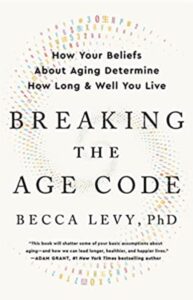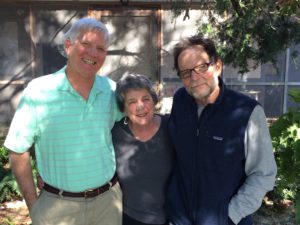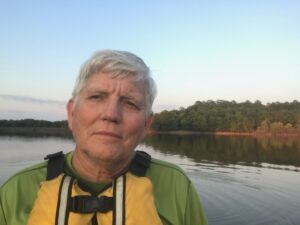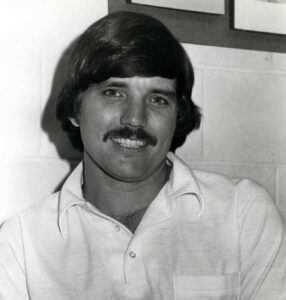I seldom picture myself becoming a demented, incontinent, and disabled patient in a nursing home. My future may indeed look like that because both of my parents ended up in such a state. On top of that, I cared for hundreds of such patients as a chaplain. Many of them were my current age (74) or younger. Why not me?
I did prepare for such a future, having bought long-term care insurance twenty years ago. Again, my parents’ aging convinced me to get the policy. They both used every dollar from their nursing home insurance benefits.
Choosing more positive aging
An article I read recently prompted these thoughts. It was titled, “It’s Your Choice: You Can Change Your Views of Aging and Improve Your Life.” Here is how it starts:
Becca Levy, a professor at Yale University, studies the way our beliefs about aging affect physical and mental health.(JULIA GERACE)
“People’s beliefs about aging have a profound impact on their health, influencing everything from their memory and sensory perceptions to how well they walk, how fully they recover from disabling illness, and how long they live.
“When aging is seen as a negative experience (characterized by terms such as decrepit, incompetent, dependent, and senile), individuals tend to experience more stress in later life and engage less often in healthy behaviors such as exercise. When views are positive (signaled by words such as wise, alert, accomplished, and creative), people are more likely to be active and resilient and to have a stronger will to live.”
Being blind is “wonderful”
I remember asking an 80-something-old patient at the nursing home what it was like being blind. She said, “Wonderful. You learn so much being blind. I can tell who is coming into my room by the sound of their footsteps. I listen to talking books. It is just one learning experience after another.” That lady would be one of those resilient folks mentioned in the article.
 Judith Graham of Kaiser Health News interviewed Yale professor Dr. Becca Levy about her newly-released book, Breaking the Age Code: How Your Beliefs About Aging Determine How Long and Well You Live. The bottom line is that if we have a more positive and hopeful view of aging when we are younger, we will more successfully move through those years to the end.
Judith Graham of Kaiser Health News interviewed Yale professor Dr. Becca Levy about her newly-released book, Breaking the Age Code: How Your Beliefs About Aging Determine How Long and Well You Live. The bottom line is that if we have a more positive and hopeful view of aging when we are younger, we will more successfully move through those years to the end.
In the interview, Dr. Levy gives several suggestions on assessing our attitudes and how to develop more positive ones. Maybe someday I, too, can say being blind is “wonderful.”
________________________________________
Chaplain Hank Dunn is the author of Hard Choices for Loving People: CPR, Feeding Tubes, Palliative Care, Comfort Measures and the Patient with a Serious Illness and Light in the Shadows. Together they have sold over 4 million copies. You can purchase his books at hankdunn.com or on Amazon.






 Last week,
Last week,  Rev. Lynn Casteel Harper of the Riverside Church in New York City, sees her role with congregants in their decline as one of “presence and witness.” “Sometimes if people are going through really difficult experiences, especially medically, it’s easy for the story of the illness and the suffering to take over,” Rev. Harper said. “Part of my role is to affirm the other dimensions.”
Rev. Lynn Casteel Harper of the Riverside Church in New York City, sees her role with congregants in their decline as one of “presence and witness.” “Sometimes if people are going through really difficult experiences, especially medically, it’s easy for the story of the illness and the suffering to take over,” Rev. Harper said. “Part of my role is to affirm the other dimensions.”